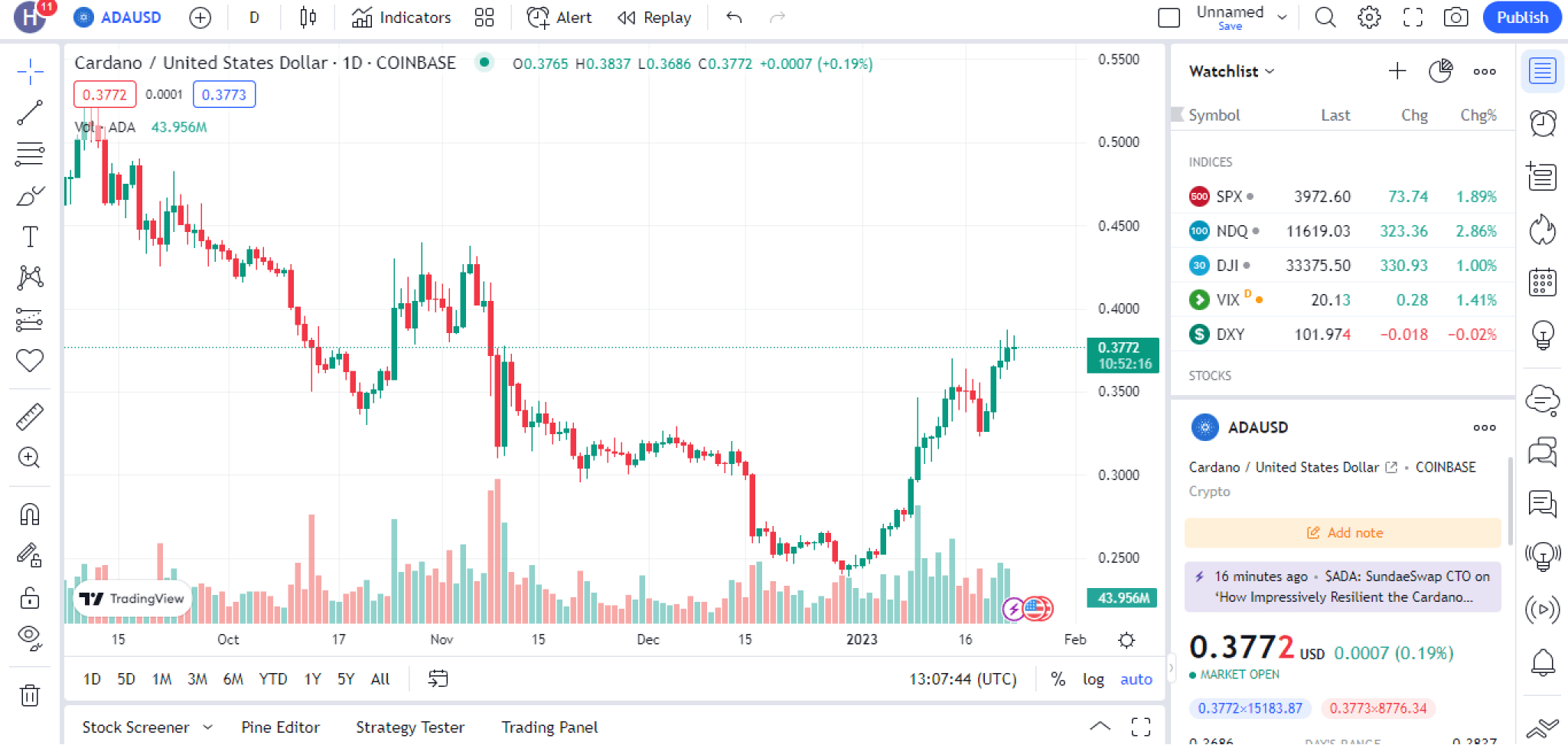
An unplanned downtime hit the Cardano network on Saturday evening, lasting for just a short period. The offline incident occurred around 07:00 pm EST and threw almost 60% of all its active nodes offline. Notably, the downtime occurred between Cardano block 8300569 and 8300570.
Though the downtime affected most nodes, the blockchain still didn’t witness an outright shutdown. However, users got some delays in their transactions during the period.
So, one may wonder what triggered the Cardano blockchain anomaly this weekend.
The co-founder and COO of Node Shark and operator of an ADA stake pool, Tom Strokes, was among the first to report the offline. He took to Twitter to disclose that more than half of Cardano nodes experienced downtime for a few hours. In his post, he shared a chart and appreciated the place of decentralization that kept the network running.
From the Strokes’ chart, the network synchronization for Cardano dropped to almost 40% due to the anomaly. But the network gradually recovered to about 87% when Strokes posted his tweet.
The reason for the downtime was not known for a long time. Also, Charles Hoskinson, Cardano’s inventor, is yet to react at the time of writing.
Cardano Developer Firm, IOG Explains the Offline Issue
Input Output Global, Cardano’s developer firm, released a statement to explain the recent downtime of the network. According to the report, a bug is responsible for the offline issue. IOG mentioned that the bug affected both the block-producing nodes and the relay nodes of the blockchain. However, the bug didn’t affect the edge nodes.
The developer noted that the bug caused over 50% of the nodes to disconnect and restart. Also, it revealed that the issue only caused a temporary anomaly that triggered just a single reaction in the nodes. While some of the nodes disconnected from a peer, others didn’t but restarted.
Additionally, the company explained that the bug briefly affected Cardano’s block production, pushing a portion of the network out of synchronization for a short period before the nodes restarted.
Further, the developer company stated that this anomaly should not cause panic since it considered such issues during the blockchain design and its consensus. Hence, the Cardano network will act just according to how it was designed to cushion such cases.
Generally, IOG mentioned that the impact of the anomaly was low, being similar to normal operation delays, which often happen at epoch boundaries. Furthermore, based on the deployed staking pool operation (SPO), many nodes will recover automatically without external interference. Usually, the SPOs in the Cardano network are the validators of ADA transactions and help maintain the blockchain’s decentralization.
Summarily, the company promised to probe more into the downtime issue. Also, it pledged to include more monitoring and controlling logging procedures to the existing ones.
Crypto Community Reacts to the Recent Anomaly in Cardano
The recent anomaly in the Cardano blockchain has spiked several reactions in the community. Discussions have centered on Cardano’s decentralization and the possible implications of the offline issue.
Also, the community noted that the incident had minimal effect on the overall network activities. Block production stopped for some minutes as the nodes were restarting after the disconnection.
A user known as f6shfll7 wrote on Reddit about the uncommon nature of the incident. He noted that the Cardano network has never experienced this anomaly before now. The user explained that it was only once that the network had its nodes slowed down due to the inefficiency of reward calculation over an epoch boundary.
Additionally, some users expressed concerns on the issue of Cardano’s decentralization. Some believe that the recent event has indicated the lapse in Cardano’s node diversity. They think that all the nodes do not shut down since not all of them accepted incoming connections during the downtime.
Another user, known as theTalkingMartlet, wrote that nodes that accept connections would generally crash before restarting. Hence, the user noted that Cardano’s nodes could survive only due to robustness and not diversity.
Cardano Token (ADA) Price Performance
Cardano native token ADA has made an impressive recovery in its value recently. According to Coincodex, the price of ADA rose by more than 46% over the past month. Also, data revealed that ADA increased by 8% over the past 7 days.
Based on technical analysis, Coincodex sees ADA to be trading below the 200-day simple moving average (SMA) currently. Also, the overall price sentiment for the token reads Neutral.

At the time of writing, ADA is trading at 0.3782, showing a drop of 1.59% over the past 24 hours. The market cap currently sits at $13.07 billion, and CoinMarketCap ranked the token as the 8th top crypto asset. Cardano’s market dominance is at 1.24%.


